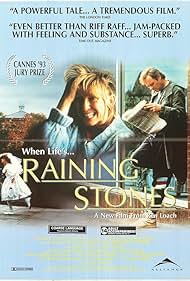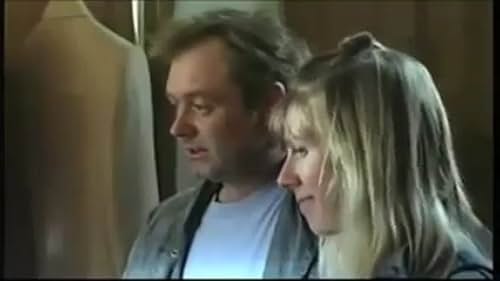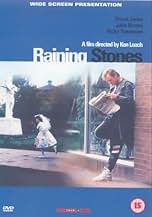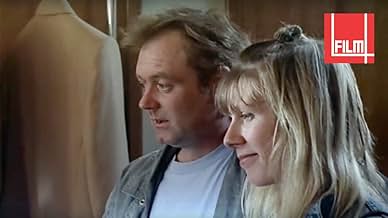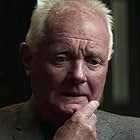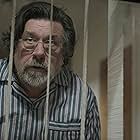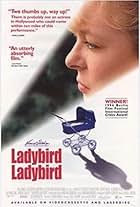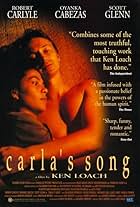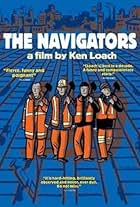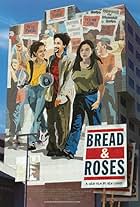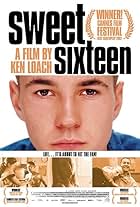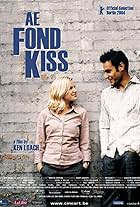Orgoglioso ma povero, Bob vuole che la sua bambina abbia un bellissimo vestito nuovo di zecca per la sua prima comunione. La sua testardaggine lo mette nei guai mentre si rivolge a misure di... Leggi tuttoOrgoglioso ma povero, Bob vuole che la sua bambina abbia un bellissimo vestito nuovo di zecca per la sua prima comunione. La sua testardaggine lo mette nei guai mentre si rivolge a misure discutibili per raccogliere i soldi necessari.Orgoglioso ma povero, Bob vuole che la sua bambina abbia un bellissimo vestito nuovo di zecca per la sua prima comunione. La sua testardaggine lo mette nei guai mentre si rivolge a misure discutibili per raccogliere i soldi necessari.
- Regia
- Sceneggiatura
- Star
- Nominato ai 1 BAFTA Award
- 9 vittorie e 5 candidature totali
- Tansey
- (as Jonathan James)
Trama
Lo sapevi?
- QuizMainly filmed on Langley Council Estate in Greater Manchester, Langley locations such as Wood Street shops, Landland Court shop and All Saints Church.
- Citazioni
Tommy: [black humor] Did you hear about the kid from Liverpool in the bloody wheelchair they took to Lourdes? They got him to the water's edge, and he couldn't get in because his legs was twisted so they had to hire a little crane and pick him and the wheelchair up over the water... and submerge him. And when he come out they all had a look at his legs, and his legs were still twisted. But the wheelchair had two new tyres on it.
- Colonne sonoreSomething Good
Written by Kate Bush and Utah Saints
Performed by Utah Saints
Published by Kate Bush Music Ltd / NTV Music (UK) Ltd
Recording courtesy of Polygram (UK) Ltd
The film espouses a wonderful philosophy -- love and prayer is enough. Yet while the film is sympathetic to the emphasis the family places on communion (getting into Heaven), at times it feels like a condemnation of Catholic greed and pie-in-the-sky fantasies of those relying on God to solve their earthly troubles -- after all, He doesn't buy communion dresses. I think that's why the film works so well. It never spells out how intelligent it is, because that's not Loach's intention. Yet what he does is incredibly smart. (Likewise, you can see the politics behind the film, and that's why they work, too: they're behind it, not in your face.) The ending might seem a little too cheery (though cheery is perhaps the wrong word), but I think it works in the tradition of great humanism: things WILL be alright in the end, if you just believe. And because it's humanism, it's true: everything else might be awful, but you're alive, you have a family, you're fighting to go on: that's wonderful.
Loach makes a brilliant choice with the car crash, because it solves something and yet it makes the moral universe of the film more complex: Is he scott free now? Who is the bad guy here? And Loach of course includes the most pragmatic priest in the movies -- pray for the worthless soul as any good Christian would, but realize that he who causes fear in the hearts of good people is not a life worth wrecking yours over. Consider the car crash an act of God (which indirectly benefits God, by supporting a family of followers), rewarding he who believes yet still exists in the practical world trying to make things work (he who doesn't just lay around waiting for God to save him). THIS is Catholic cinema. I'm agnostic, and this touched my soul. It gets at the roots of what real religion does, or is supposed to do: heal, protect, love -- not preach, frighten, or intimidate. So I think even though he opts for a "faith" film (that is, he does not offer a text book on how to solve your problems), Loach's "realism" and pragmatic philosophy still suggests that the everyday is important -- keep at it. It's what leads to the faith, it's what's needed for the faith to work. 9/10
- desperateliving
- 1 feb 2005
- Permalink
I più visti
- How long is Raining Stones?Powered by Alexa
Dettagli
Botteghino
- Lordo Stati Uniti e Canada
- 89.388 USD
- Lordo in tutto il mondo
- 90.602 USD
- Tempo di esecuzione1 ora 30 minuti
- Colore
- Proporzioni
- 1.78 : 1
Contribuisci a questa pagina

